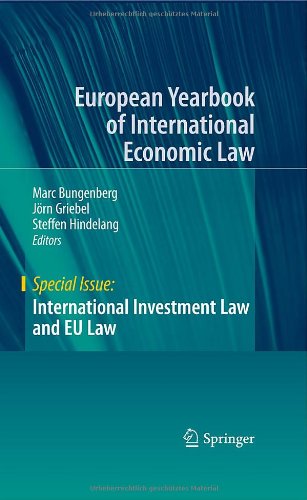

Most ebook files are in PDF format, so you can easily read them using various software such as Foxit Reader or directly on the Google Chrome browser.
Some ebook files are released by publishers in other formats such as .awz, .mobi, .epub, .fb2, etc. You may need to install specific software to read these formats on mobile/PC, such as Calibre.
Please read the tutorial at this link: https://ebookbell.com/faq
We offer FREE conversion to the popular formats you request; however, this may take some time. Therefore, right after payment, please email us, and we will try to provide the service as quickly as possible.
For some exceptional file formats or broken links (if any), please refrain from opening any disputes. Instead, email us first, and we will try to assist within a maximum of 6 hours.
EbookBell Team

0.0
0 reviewsThe European Yearbook of International Economic Law (EYIEL) is an annual publication in International Economic Law, a field increasingly emancipating itself from Public International Law scholarship and evolving into a fully-fledged academic discipline in its own right. With the yearbook, the editors and publisher intend to make a significant contribution to the development of this "new" discipline and provide an international reference source of the highest possible quality. The EYIEL covers all areas of IEL, in particular WTO Law, External Trade Law of major trading countries, important regional economic integration agreements, International Competition Law, International Investment Regulation, International Monetary Law, International Intellectual Property Protection and International Tax Law. In addition to the regular annual volumes, EYIEL Special Issues routinely address specific current topics in International Economic Law. The entry into force of the Lisbon Treaty entails sweeping changes with respect to foreign investment regulation. Most prominently, the Treaty on the Functioning of the European Union (TFEU) now contains in its Article 207 an explicit competence for the regulation of foreign direct investment as part of the Common Commercial Policy (CCP) chapter. With this new competence, the EU will become an important actor in the field of international investment politics and law. The new empowerment in the field of international investment law prompts a multitude of questions. This volume analyzes in depth the new “post-Lisbon situation” in the area of investment policy, provokes further discussion and offers new approaches.